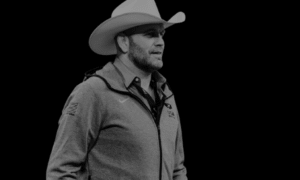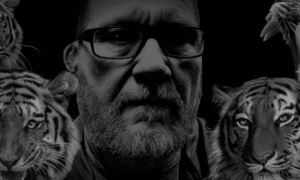Five Point Move is proud to host US Greco Roman National Team Head Coach Matt Lindland every week for “Coach Lindland’s Report.” For fans and wrestlers looking for insights regarding the US Greco National Team, we ask Coach Lindland questions pertaining to recent events, training, and other topics surrounding the sport of Greco Roman. If you have any questions you’d like us to ask going forward, let us know via Facebook, Twitter, or through our Contact page.
This week, US Greco Roman head coach Matt Lindland is getting ready for the 2017 Dave Schultz Memorial International, which takes place this Wednesday and comes on the heels of the Winter Camp at the Olympic Training Center. The camp, with its team-building objective, has been a focal point and Coach Lindland wraps it up to begin this conversation. Also covered is the aforementioned Schultz as well as the concept of “work-life balance” and how it pertains to the athletes.
5PM: Did you accomplish what you wanted to accomplish and see what you wanted to see in regards to the Winter Camp?
Coach Matt Lindland: Yeah, I think a couple of the guys kind of came in not exactly prepared for what we were going to take care of in the beginning. But after that, I lit a fire under everybody and the rest of the coaches echoed what I was saying on that and it was a complete 180. The attitudes were great, the work-rate improved, and the volume was high. A lot of stuff got tackled this camp as far as working with our athletes and sharing philosophies and technique. And it’s hard right now because we’re in flux with what is going to happen with these rules.
Currently, we’re still wrestling with what’s going on in Budapest. We’ve heard all the rumors about what’s coming, we’re just not sure how they are going to be applied yet. But it doesn’t matter what the rules are — we need to score points on our feet, we need to score points on top, and we have to stop guys on the mat. So I mean, philosophy is philosophy and principles are timeless, so we will make adjustments for the technical and tactical pieces for when the rules are actually applied.
5PM: How did everybody react to the actual “boats in the water” exercise that aligns with the team-building concept of the camp itself?
ML: The first week we kind of laid out that philosophy and I talked about it for an hour, I showed a couple of videos and had a presentation on the screen. So I think the guys had a good idea. Some of the athletes, I think I told you, I’ve taken out before (rafting) but when they actually got in the water and had to work as a team in-sync, it really opened up their eyes as to how important it is for us to be on the same page. Just working together and paddling in the same direction, and not just in the same direction, but also in-sync. We saw that when we put the boats together, which teams could tug-of-war the best and it wasn’t always the biggest, strongest guys in the boat. It was the guys who were able to consistently work together best. They had good leadership in their boat, they had good communication skills amongst the team, and they were on the same page rowing together.
5PM: Judging by a few of the photos, it also looked like everyone had a good time.
ML: Anytime you have guys and put them in the water, they’re kids. They immediately turn into six-year olds (laughs). It doesn’t matter how old you are, I’m the same way. I love water and when you play in the water, it’s fun, regardless if it’s a pool or Class Five whitewater, it’s always going to be a fun experience and that’s what this sport should be about. It has to be fun. You have to enjoy what you are doing, because there are a lot of parts of our sport that are very difficult and there is a lot of struggle and agony that goes along with trying to be the best in the world. So along the way, you have to find a lot of areas to enjoy the process.
5PM: What is it you’re looking for out of the US guys this week at the Dave Schultz Memorial?
Coach Matt Lindland: I think that’s a great question, it goes back to what we talked about when we opened this conversation, if we got things accomplished. I guess we’re really going to see that at competition time. Because what we want to see is our guys scoring points, we want to see them attacking, not just waiting and trying to counter-attack. We want them forcing their positions, we want to see our athletes in the right body positions so that when the opportunity presents itself, they are able to capitalize on those opportunities. If your body is out of position, you have to adjust your position before you can score. So we spent a lot of time stressing positional awareness and execution — when the moment arises, you have to score.
5PM: It would seem for the athletes who will not be a part of the March tour overseas, the Schultz comes at a pivotal time because for these guys, it could be their last competitions before the World Team Trials. They have to get as much out of it as possible.
ML: Absolutely. Guys have to go out there and make the most of every opportunity. I think the fact of going out there and not being afraid to make a mistake, not being afraid to give up a point because you know you’re going to keep attacking and keep coming forward — that’s really what it’s about. If you’re out there and just focused on being careful and staying safe, you’re not going to get the results you want in the long run. Maybe you can win a tournament or two, although I don’t see that happen too frequently. The long-term plan, the developmental plan for four years from now as we have just started a quad, why not open up? Make a lot of attempts, experiment out there on the mat and then make adjustments as you get closer to the next Olympics.
5PM: The phrase “work-life balance” is thrown around alot these days. How important is it for wrestlers to achieve balance in their lives off the mat, especially given the amount of training necessary to compete at a world level?
Coach Matt Lindland: I’m thoroughly convinced you have to have balance in your life, period. I feel like the times I’ve had the most success in any of my endeavors, whether it was in business or competition as a wrestler or mixed martial artist, and even now as a coach, you have to take a Sabbath. You have to. It’s required. When you work hard, when you fight hard, whatever you’re doing, and you are putting in effort to be exceptional, to be one of the most outstanding in the world, I think it’s essential to take a Sabbath. And I think that is what you’re talking about when you say “balance.”
We need days off, we need recovery times built into our training plans. I always had a job when I was competing. When I was an athlete out here as a resident, I had two jobs. I was a Zamboni driver in the evenings and in the middle of the day I was fortunate enough to get a job where I broke down film for the NGB. That was a blessing, to be able to watch film and break it down for all of the different weight classes. It just made me stronger at understanding the sport quicker.
I think we’re seeing it with our athletes now, with Kamal (Bey) and Tracy (G’Angelo Hancock) starting school. When they are done with practice, they don’t really have a lot of time to mess around. They have to get to their studies and focus on something else. However you balance your work, especially with our sport. You’re on the mat for four hours a day or training for four hours a day. If you include the time you show up, the time you shower, and you’re out of the room, you really put in four hours during the day. Most people in our society, maybe they work too much, but eight hours is typically a minimum, so use those other hours to get that degree.
When you have time off, go out into nature. There is nothing that revitalizes your soul as well as getting out into nature. So I think those are all things that I stress and also try to incorporate into our training.
Be sure to follow Coach Matt Lindland on Facebook, Twitter, and his official blog for updates on the US Greco Roman Wrestling program heading into the new competitive cycle.


















